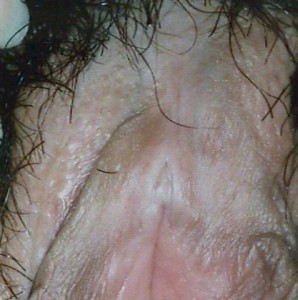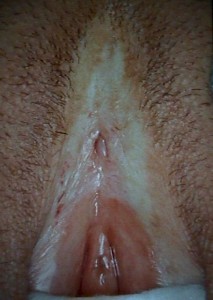Lichen sclerosus is one form of vulvar dystrophy. With lichen sclerosus, the skin of the vulva is too thin.
Clinically, women with lichen sclerosus complain of chronic vulvar itching and irritation. Tissues may be fragile, tear easily and result in superficial bleeding. Using only casual observation, the vulva may appear normal, but closer inspection will reveal a whitish discoloration and loss of anatomic differentiation of the vulvar structures.

It may be difficult, without a vulvar biopsy, to distinguish lichen sclerosus from the other forms of vulvar dystrophy (hypertrophic vulvar dystrophy and mixed dystrophy). For this reason, women suspected of having lichen sclerosus usually undergo vulvar biopsy to confirm the diagnosis.

Lichen sclerosus can occur in any age group, is not related to lack of estrogen, and its’ cause is not known.
Strong topical steroids, such as clobetasol or betamethasone have been studied in multiple centers, and in general are probably the most effective currently-available treatment:
- 0.05% clobetasol propionate cream is applied to the vulva twice daily for one month, than at bedtime for one month and then twice a week for three months. It is then used as needed one or two times per week. Using this approach, 95% of patients will notice significant improvement and 75% will report complete remission of symptoms.
In the past, the most effective available treatment consisted of topical testosterone. This treatment can still be effective, but the percentage of responders is less than with strong topical steroids.
- 2% testosterone propionate in petroleum jelly, applied 3 times a day for 3 to 6 months or until the symptoms are relieved. Then the applications are gradually reduced to a level of one or two applications per week.
